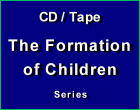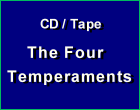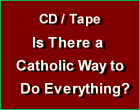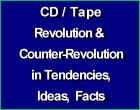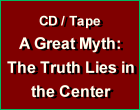Right to Life
 |
 |
 |
 |
 |
 |
 |
Euthanasia Will Not Give People Dignity
Being pro-life means, by definition, being for life. The same groups that
recognize the value of children in the womb are those who recognize the
value of the elderly, the terminally ill, the mentally ill and all human
life. With euthanasia and assisted suicide now accepted in Canada as
additional ways to eliminate inconvenience and suffering, it is worth
considering how interconnected the issues of abortion and euthanasia are.
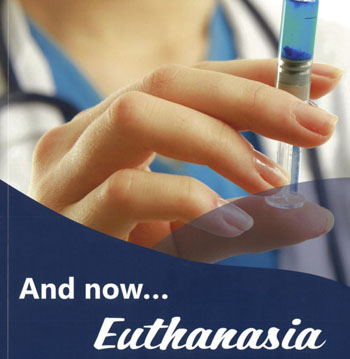 Assisted suicide can be paralleled to drug-induced abortions, where a doctor
prescribes pills that the patient ingests to accomplish their own goal of
ending life. Euthanasia, on the other hand, can be compared to surgical
abortion, where a doctor is called upon to take active measures to end a
life. In cases of both assisted suicide and drug-induced abortion, if a
patient’s self-administered attempt fails, a doctor may be called upon to
finish the job.
Assisted suicide can be paralleled to drug-induced abortions, where a doctor
prescribes pills that the patient ingests to accomplish their own goal of
ending life. Euthanasia, on the other hand, can be compared to surgical
abortion, where a doctor is called upon to take active measures to end a
life. In cases of both assisted suicide and drug-induced abortion, if a
patient’s self-administered attempt fails, a doctor may be called upon to
finish the job.
In both abortion and euthanasia, we see debates dominated by the word “choice.” It is becoming increasingly common in Canada for the word “choice” to be associated with ending life. We have essentially eliminated our fundamental right to life, and instead made it only a right to die.
There is no legal protection for a woman who chooses to carry her child to term and no legal guarantee that a terminally ill patient will have access to quality palliative care. Instead, the discussion is focused on the right to end pre-born life, the right to end one’s own life and, some suggest, a right to end the life of someone else who has been rendered incapable of making such a decision for themselves, for reasons such as dementia or mental retardation.
As some try to tell women they are empowered by the choice to kill their child, so we are telling those suffering that they are empowered by euthanasia. Just as we tell a teenage mother she cannot, or should not, consider parenting, so we tell a terminally ill patient that he should not continue to drain resources while his illness runs its course, that he cannot find meaning in his suffering and that he has nothing of value left to offer to society. We are telling both that the only empowering choice is death.
 Pre-natal screening and high abortion rates have set the stage for a culture
that is willing to embrace euthanasia. By trying to determine before a
baby’s birth whether his life is worth living, we break down our resistance
to the same question later in life. If I, as a mother, will decide the value
of my child’s life based on his prenatal diagnosis, I had better be ready to
extend that same measuring line to myself, my spouse, my parents and my born
children.
Pre-natal screening and high abortion rates have set the stage for a culture
that is willing to embrace euthanasia. By trying to determine before a
baby’s birth whether his life is worth living, we break down our resistance
to the same question later in life. If I, as a mother, will decide the value
of my child’s life based on his prenatal diagnosis, I had better be ready to
extend that same measuring line to myself, my spouse, my parents and my born
children.
I should also consider not only the quality of life of the person whose life is in question, but also how the continued life of that person will affect my quality of life. Is this going to affect my goals? Be too much of a draw on my personal time and energy? Maybe that life, then, is not worth keeping.
Having the right to abort a child does not enhance a woman’s equality, it tells her that what makes her unique is her weakness. So, having the right to die at the hand of a doctor does not enhance a patient’s dignity, it tells him his doctor is just as happy not to care for him, to move on to another patient with more value. These are lies sold in an attempt to capitalize on physical or mental weakness, fear and self-doubt; lies to cover for a system that is inadequate to meet pre-natal, post-natal and palliative care needs. These are lies the pro-life movement has never bought; lies no Canadian should accept as good enough.
Our current void of abortion restrictions and new embracing of euthanasia show a consistent devaluing of life in Canada. If euthanasia “rights” follow the course abortion “rights” have taken, euthanasia will soon be available at any age or developmental stage, for any reason, from poverty to inconvenience to relationship difficulties.
But, if we are a country that values life or, at least, we want to be, then we need to stop looking for legal ways to end it and instead look for ways to embrace and enhance it. As pro-life individuals, it is our responsibility to model respect for life, to tell our friends and neighbors that we value them, and to show in how we treat all persons we meet that we believe they have something to offer and a reason for existing.

This article was first
published in
LIfeNews.com on July 22, 2016

Another push to give the choice to end life
In both abortion and euthanasia, we see debates dominated by the word “choice.” It is becoming increasingly common in Canada for the word “choice” to be associated with ending life. We have essentially eliminated our fundamental right to life, and instead made it only a right to die.
There is no legal protection for a woman who chooses to carry her child to term and no legal guarantee that a terminally ill patient will have access to quality palliative care. Instead, the discussion is focused on the right to end pre-born life, the right to end one’s own life and, some suggest, a right to end the life of someone else who has been rendered incapable of making such a decision for themselves, for reasons such as dementia or mental retardation.
As some try to tell women they are empowered by the choice to kill their child, so we are telling those suffering that they are empowered by euthanasia. Just as we tell a teenage mother she cannot, or should not, consider parenting, so we tell a terminally ill patient that he should not continue to drain resources while his illness runs its course, that he cannot find meaning in his suffering and that he has nothing of value left to offer to society. We are telling both that the only empowering choice is death.

Life has a value greater than mere utility
I should also consider not only the quality of life of the person whose life is in question, but also how the continued life of that person will affect my quality of life. Is this going to affect my goals? Be too much of a draw on my personal time and energy? Maybe that life, then, is not worth keeping.
Having the right to abort a child does not enhance a woman’s equality, it tells her that what makes her unique is her weakness. So, having the right to die at the hand of a doctor does not enhance a patient’s dignity, it tells him his doctor is just as happy not to care for him, to move on to another patient with more value. These are lies sold in an attempt to capitalize on physical or mental weakness, fear and self-doubt; lies to cover for a system that is inadequate to meet pre-natal, post-natal and palliative care needs. These are lies the pro-life movement has never bought; lies no Canadian should accept as good enough.
Our current void of abortion restrictions and new embracing of euthanasia show a consistent devaluing of life in Canada. If euthanasia “rights” follow the course abortion “rights” have taken, euthanasia will soon be available at any age or developmental stage, for any reason, from poverty to inconvenience to relationship difficulties.
But, if we are a country that values life or, at least, we want to be, then we need to stop looking for legal ways to end it and instead look for ways to embrace and enhance it. As pro-life individuals, it is our responsibility to model respect for life, to tell our friends and neighbors that we value them, and to show in how we treat all persons we meet that we believe they have something to offer and a reason for existing.

Posted August 15, 2016
______________________
______________________






